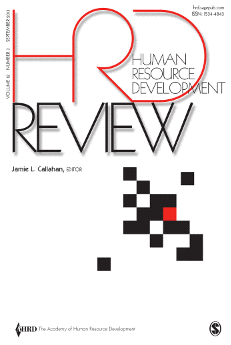Old Stress, New Stress, Bad Stress, Eustress: Challenging Employees with Positive Organizational Stress
[We’re pleased to welcome Wendy Becker of Shippensburg University. Dr. Becker recently published an article in Human Resource Development Review with co-authors M. Blake Hargrove of Shippensburg University and Debra Hargrove of Dickinson College, entitled “The HR Eustress Model: Creating Work Challenge Through Positive Stress.”]
- What inspired you to be interested in this topic?
We find the negative focus on organizational stress disturbing. Stress is a normal and oftentimes positive part of life within any organization. In this article we attempt to help HR professionals harness the positive possibilities of workplace stress. We also offer a theoretical framework for researchers to explore.
- Were there findings that were surprising to you?
We introduce a new phrase–“positive HRD”–that seeks to promote positive organizations by developing opportunities to challenge employees. We provide a theoretical framework to explore the possibilities of positive organizational stress.
- How do you see this study influencing future research and/or practice?
HR and HRD professionals will find this article helpful in two ways: (1) we provide a theoretical explanation for the efficacy of existing HR practices, and (2) we point out specific interventions that can help create improved performance, improved worker well-being, and other important positive organizational and individual outcomes.
HR and HRD researchers can use this theoretical model as a basis for future empirical investigations. This article can serve as a launching point for future explorations of “positive HRD.”
The abstract for the paper:
Building on existing conceptualizations of stress, we present a model that provides an alternate explanation of the efficacy of human resource development (HRD) interventions. Unlike most stress research that emphasizes the negative side of stress, we view eustress—good stress—as a positive individual and organizational outcome. The HRD eustress model extends theory from the positive psychology and positive organizational behavior literature and positions a role for HRD in creating positive stress as a means to improve performance. We describe how HRD professionals can help challenge employees as a means of attaining individual goals and personal development.
You can read “The HR Eustress Model: Creating Work Challenge Through Positive Stress” from Human Resource Development Review free for the next two weeks by clicking here. Want to know all about the latest research from Human Resource Development Review? Click here to sign up for e-alerts!
 M. Blake Hargrove is associate professor of Management in the John L. Grove College of Business at Shippensburg University. His research interests include positive organizational behavior, scale development, and applied business ethics. He holds a PhD from the University of Texas at Arlington.
M. Blake Hargrove is associate professor of Management in the John L. Grove College of Business at Shippensburg University. His research interests include positive organizational behavior, scale development, and applied business ethics. He holds a PhD from the University of Texas at Arlington.

Wendy S. Becker is professor of Management, Shippensburg University. Research interests include experiential learning and the efficacy of workplace interventions, as well as managerial development and motivation theory. She received the Award for Innovative Excellence in Teaching, Learning, and Technology from the International Conference on College Teaching and Learning and she is a Fellow of the Society for Industrial and Organizational Psychology.
 Debra F. Hargrove is associate vice president for Human Resources Services at Dickinson College. She has dedicated her career to make the organizations in which she serves better places for all employees. She has been an HR practitioner for more than twenty years, holds an MA in Human Resources, and earned the Senior Professional in Human Resources (SPHR) designation.
Debra F. Hargrove is associate vice president for Human Resources Services at Dickinson College. She has dedicated her career to make the organizations in which she serves better places for all employees. She has been an HR practitioner for more than twenty years, holds an MA in Human Resources, and earned the Senior Professional in Human Resources (SPHR) designation.






















































































